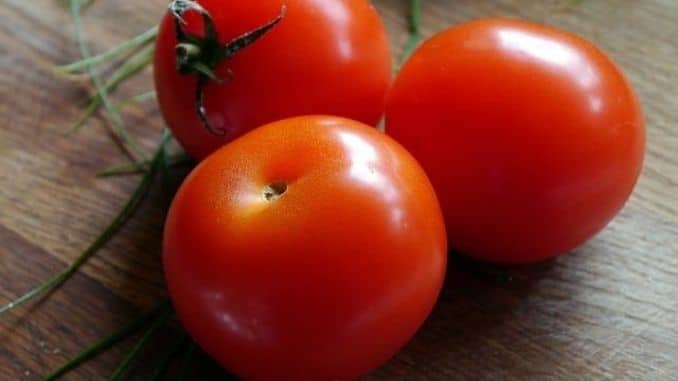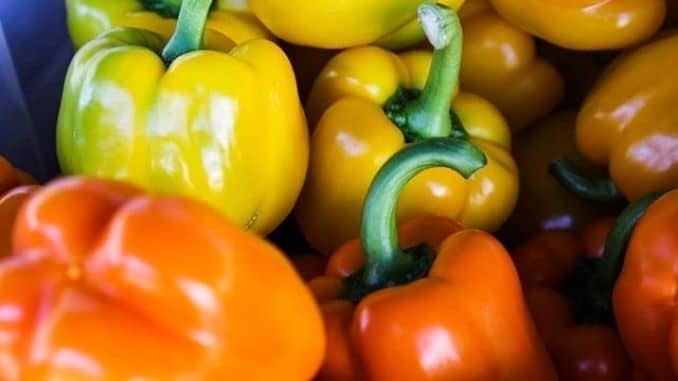
There’s no getting around it. Organic foods are often more expensive than conventional foods.
According to a 2015 Consumer Reports study comparing more than 100 organic and conventional foods, organic options were, on average, 47 percent more expensive. In some instances, organic was cheaper but, in others, organic was significantly more.
There are several reasons for these higher costs. Organic farmers have to hire more workers, must pay more for natural fertilizer, often pay extra for certifications. Must bear higher post-harvest handling costs. They also have to support higher standards for animal welfare.
At the same time, the demand for organic foods has been increasing steadily for the past decade or so, to the point where demand outpaces supply. That drives the price up.
According to the United States Department of Agriculture, more than half of Americans would prefer to eat organic over nonorganic food. But it can be difficult to swing it on a tight budget.
That means for many of us, we need to make choices. Which foods should I buy organic? We’ve got some recommendations for you because, in some cases, conventional foods work as well as organic. However, in others, buying organic is a much healthier option
Is Organic Food More Nutritious?
When organic food first started to gain ground in the market, it was mostly because we thought it was more nutritious. Surely food that is grown more like we grow it at home contains more vitamins and minerals, right?
Well, we’re not exactly sure. Several early studies seemed to suggest that organic foods were better for us, but more recent studies have produced mixed results.
In 2012, for example, researchers conducted an extensive review of 17 studies comparing organically and conventionally grown foods. Results showed very little difference in nutritional content, except for “which foods should I buy organic” higher omega-3 fatty acid content in organic milk and chicken. A 2014 review of more than 300 studies found similar results, with organic crops having, on average, higher concentrations of antioxidants but lower concentrations of cadmium than conventionally grown foods.
Researchers have also compared the two when it comes to how they affect our health. When reviewing 12 studies, they found that consumption of strictly organic dairy products reduced the risk of eczema in infants but, otherwise, they could find no difference.
“From a systematic review of the currently available published literature,” researchers wrote, “evidence is lacking for nutrition-related health effects from the consumption of organically produced foodstuffs.”
However, there are studies on the other side too. A large meta-analysis published in 2016 found significantly higher concentrations of healthy polyunsaturated fatty acids and omega-3 fatty acids in organic milk over conventional milk. In fact, organic dairy and meat products both had about 50 percent more omega-3 fatty acids. Which are associated with decreased inflammation, reduced risk of heart disease and better immune function. Results also showed that organic milk had significantly higher a-tocopherol (vitamin E) and iron.
An earlier 2008 study also found that organic tomatoes had almost double the concentration of two types of flavonoids: quercetin and kaempferol. Healthy compounds that have potent antioxidant activity. The 10-year mean levels of quercetin were 79 percent higher than those in conventional tomatoes, and levels of kaempferol were 97 percent higher.
There are a number of other studies showing organic foods to be higher in some nutrients and lower in others. Part of the problem is that it’s tough to find an average since the nutrient content of all foods is very variable. How many nutrients one particular food has depends on a lot of factors, including climate, weather variations, harvest time, location of the crop — on one side of the hill or another — and more.
Scientists look at large numbers of studies to try to average out all these factors and, so far. The results have suggested that though organics may be higher in antioxidants and healthy fatty acids, on the whole, we don’t have enough evidence to conclude that they are more nutritious.
But one thing we do know: organic foods are consistently lower in pesticide residues.
Organic Food Consistently Lower in Pesticides
Pesticides are dangerous to human health. The U.S. Environmental Protection Agency (EPA) states that though the health effects depend on the type of pesticide, in general. These chemicals can irritate the skin and eyes, affect the nervous system and the hormonal system and, in some cases. Increase the risk of cancer.
A large review of studies published between 1992 and 2003, for example, found links between pesticide exposure and non-Hodgkin’s lymphoma, leukemia, brain cancer, prostate cancer, kidney cancer and other types of cancer. Other studies of farmers with high exposures to pesticides have shown an increased risk of Alzheimer’s disease, Parkinson’s disease, cancer, depression and respiratory problems.
A recent 2017 study review reported that eating foods with high levels of pesticides had an adverse effect on the brain. Mothers with traces of pesticides in their systems during pregnancy. We’re more likely to have children with developmental problems and poorer intellectual development. Pesticides were also found to have a negative effect on IQ levels.
Exposure is the key. How much of the pesticide gets into your system? Farmworkers and pesticide applicators are most at risk for long-term health problems stemming from pesticides. But newborns, young children and the elderly are also at risk even from lower exposures. Children absorb greater concentrations of pesticides per body weight. The elderly often have compromised immune systems that are less likely to fight off any damaging effects.
Which foods should I buy organic? For optimal health, we must reduce our exposure as much as we can. Those who work with pesticides are most at risk, but the rest of us do take in trace amounts from our foods. This is where organic foods shine.
Reducing Pesticide Exposure Through Organic Foods: Research Insights
In study after study, organic foods come up lower on synthetic pesticide residues. Farmers still use pesticides when growing organic foods — they avoid synthetic (lab-made) versions and use natural ones, instead. These natural pesticides may also carry some health risks but, in general, organic foods have been found to carry lower residues of pesticides tested.
In the 2012 systematic review of 17 studies mentioned above, the risk for contamination with detectable pesticide residues was lower among organic than conventional produce. The risk for potentially dangerous antibiotic-resistant bacteria was higher in conventional than in organic chicken and pork.
In the 2014 meta-analysis, conventional crops were four times more likely to have pesticide residues than organic crops. Levels were still below safety limits, but the results were telling. In a 2016 study, researchers found that traces of pesticides in urine decreased significantly when people moved from a conventional to an organic diet.
A number of other studies show similar results, which seems to indicate that if we choose more organic foods. We can reduce our exposure to pesticides that, in turn, helps us avoid pesticide-related illnesses.
When to Buy Organic?
This brings us back to our original dilemma: we’d like to buy organic for the lower pesticide residues and the potential higher nutrient content, but we don’t want to break the bank. What’s the best approach? Which foods should I buy organic?
1. Clean Your Conventional Foods Properly
You can work to reduce pesticide levels in your conventional foods. Baking, boiling, canning, frying, juicing, peeling and washing of fruits and vegetables helps reduce levels of pesticide residues from 10 to 80 percent, so be sure to wash all foods carefully and cook thoroughly. A 2014 study reported that washing with tap water reduced pesticide levels by 60 to 70 percent.
2. Buy Local
Check-in with farms in your area and find out what pesticides they use. Those who use sustainable pest management techniques are likely to have produce that you can feel good about using.
3. Avoid the ‘Dirty Dozen’ Plus One
Choose organic in those produce items most likely to have the highest pesticide residues. Each year, the Environmental Working Group (EWG) puts out a “dirty dozen” list of foods that tested highest for pesticides. According to their 2017 list, the following foods are best bought organic:
- Strawberries
- Spinach
- Nectarines
- Apples
- Peaches
- Cherries
- Grapes
- Celery
- Tomatoes
- Sweet bell peppers
- Potatoes
- Pears
- Hot peppers
Other produce items like sweet corn, avocados, pineapples, cabbage, cauliflower, onions, frozen sweet peas, papayas, asparagus, mangoes, eggplant, melons, kiwi and grapefruit were found to be least likely to be contaminated by pesticides. Conventional versions of these items are likely to be as safe as organic versions.
4. Rethink Your Beef
Which foods should I buy organic? Most conventional growers use antibiotics to help promote growth. Recent research suggests that this overuse of antibiotics in our food supply is leading to a rise in antibiotic-resistant bacteria.
Certified organic beef is free of antibiotics and hormones and, if you choose grass-fed. You’re also likely to get more omega-3 fatty acids. One study found that organic meat had 47 percent higher levels of omega-3 fatty acids.
Animals raised organically are also fed 100 percent organic feed, and free-range options suggest they were raised in a more humane way with more well-rounded diets.
5. Choose Organic Dairy
Conventional growers may use antibiotics in their dairy cows — you can avoid these by going organic. Some conventional dairy farms also use hormones to help increase milk production.
Studies have shown that organic dairy has higher levels of healthy fatty acids. Including conjugated linoleic acid and omega-3 fatty acids. Synthetic pesticides and herbicides are also prohibited in the feed consumed by cows producing organic milk.
6. Which foods should I buy organic? Choose Organic and Free-range Eggs
For the same reasons as those listed above, it’s best to choose organic eggs to be sure you’re avoiding antibiotics and hormones and getting more natural nutrition in your eggs. Organically grown chickens are also exposed to fewer pesticides. According to studies, fat-soluble pesticides used to produce chicken food can hide away in chicken tissue and eggs.
Finally, studies have indicated that organic eggs from pastured chickens had three times more omega-3 fatty acids and nearly twice as much vitamin E.
7. Taste Organic Wine
You may not have thought about organic when it comes to wine, but it’s time to think again. According to the California Environmental Protection Agency, 25 million pounds of pesticides were applied to conventionally grown wine grapes in California in 2010. A 19 percent increase from the year before.
A report on European wines also showed that 35 percent of them contained traces of pesticides and that conventionally produced wines were considerably more contaminated than their organic counterparts.
If you want to know which foods should you buy organic to help you restore your natural vitality and get slim and stay slim, then check out the Best Foods That Rapidly Slim & Heal In 7 Days program, here!







